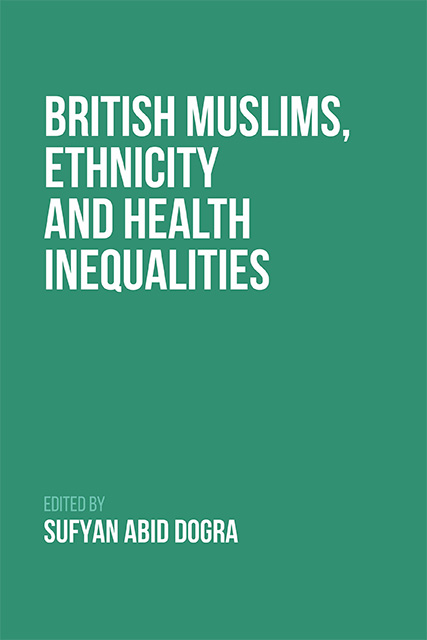16 - Health Promotion through Mosques and Muslim Health Professionals: A Case Study of the British Islamic Medical Association’s Lifesavers
Published online by Cambridge University Press: 18 October 2023
Summary
Introduction
Muslim communities in the West come from diverse backgrounds and are a growing population cohort. These communities are heterogeneous and represent a rich tapestry of cultural, denominational and socioeconomic mixing. Reports of Muslims in Britain date back to the 1300s, with references in The Canterbury Tales, the first large groups then arriving over 300 years ago as subjected during the British Raj in India, followed by another large influx of economic immigrants during the mid-twentieth century. Today, the majority of British Muslims hail from the diaspora of the Commonwealth – mainly from South Asia, with smaller but significant numbers of those with Sudanese, Nigerian and Malaysian heritage, as well as those from the various nations of the Arab world. According to the 2011 census, the British Muslim community is almost split down the middle by way, with 47 per cent of Muslims born in the UK. The Muslim Council of Britain (MCB) reports that one in three Black and Minority Ethnic (BME) people in the UK are from a Muslim background (MCB 2015).
British Muslims and Health
The rituals and practices of Muslim communities lend themselves to certain behaviours and beliefs which can present unique challenges and opportunities for public health. For instance, fasting during Ramadan is observed by most Muslims across the globe, and many Muslim patients report that their religious beliefs play an important part in how they approach their health and their lives more generally (Ghani 2013; Rasool 2014; Sheikh 2007).
Despite being a relatively young population (33 per cent under the age of 15 and 4 per cent over 65), the self-reported quality-of-life measures and health outcomes of these communities are not good. Long-term conditions, which are costly to health systems and livelihoods alike, are poorly managed in this patient population (Ali 2015; Mir and Sheikh 2010; Lynch et al. 2000; Karlsen and Nazroo 2002; Harriss 2007). Furthermore, the MCB analysis of the 2011 census (MCB 2015) reports that 24 per cent of Muslims aged over 50 claim to be in ‘bad’ or ‘very bad’ health, and in approximately fifty local authorities 40 per cent of Muslim women aged over 65 report ‘bad health’.
- Type
- Chapter
- Information
- British Muslims, Ethnicity and Health Inequalities , pp. 359 - 377Publisher: Edinburgh University PressPrint publication year: 2023



